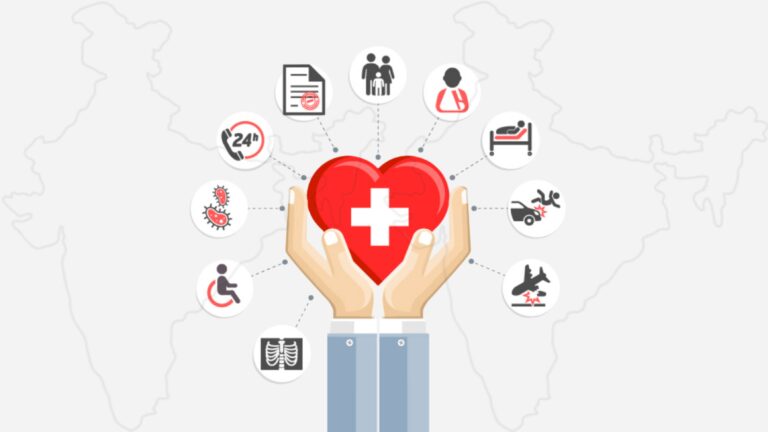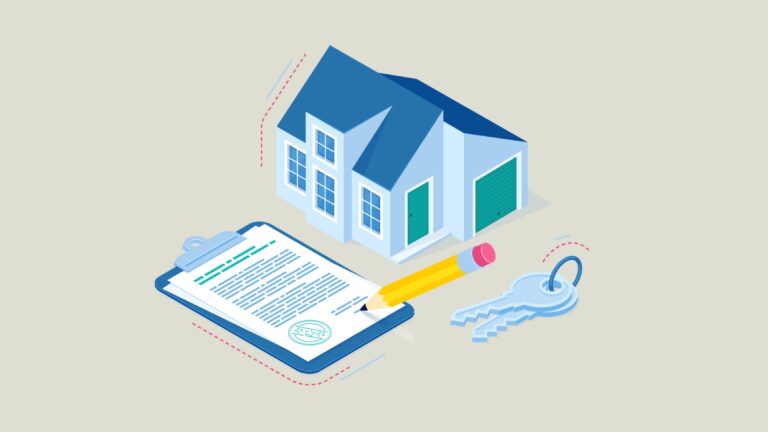As a driver, knowing about car insurance is key. This guide covers everything you need to know about auto insurance. It talks about the types of coverage, what affects your insurance rates, and how to save money. It’s perfect for new drivers or those looking to improve their car insurance coverage.

Key Takeaways
- Explore the various types of car insurance coverage available, including liability, collision, and comprehensive.
- Understand why car insurance is required and the importance of maintaining proper coverage.
- Learn how insurance premiums are calculated, including the impact of factors like your age, driving experience, and vehicle details.
- Discover ways to save money on your car insurance policy, such as through safe driver discounts and bundling policies.
- Get a step-by-step guide on the car insurance claims process, including understanding deductibles.
What is Car Insurance?
Car insurance is a financial product that protects against the costs of car accidents, theft, and other incidents. It helps cover the costs that can come from these situations. By knowing the types of car insurance and why it’s needed in most states, drivers can stay safe on the road.
Types of Car Insurance Coverage
Car insurance policies have several types of coverage:
- Liability coverage – Covers you if you’re at fault in an accident and cause damage or injury to others.
- Collision coverage – Pays for repairs or a new car if it gets damaged in a crash with another car or object.
- Comprehensive coverage – Protects against non-collision incidents like theft, vandalism, or natural disasters.
- Personal injury protection (PIP) – Covers medical bills and lost wages for you and your passengers, no matter who was at fault.
Why is Car Insurance Required?
In most states, car insurance is a must for all drivers. This rule ensures drivers can pay for damages or injuries they might cause in an accident. Without the right types of car insurance, you could face fines, lose your license, or even get in trouble with the law. Having the right car insurance keeps you, your car, and others safe on the road.
“Car insurance is not just a legal requirement, but a responsible way to protect yourself and others on the road.”
How Car Insurance Premiums are Calculated
When you think about your car insurance cost, it’s called the premium. Insurance companies look at many things to figure out your rate. Knowing how they calculate premiums can help you save money on your policy.
Your driving history is a big part of the calculation. Things like traffic violations, accidents, and claims matter a lot. If you’ve been driving safely, you’ll likely pay less. But if you’ve had accidents or tickets, you might pay more.
The type of car you drive also matters. Things like safety features, repair costs, and theft risk are considered. Cars that cost more to fix or are stolen more often will cost you more to insure.
Where you live is another big factor. Companies look at accident and crime rates in your area, plus repair costs. If you live in a busy city, you might pay more for insurance than someone in a quieter area.
| Factor | Impact on Premiums |
|---|---|
| Driving History | Drivers with clean records typically pay lower rates, while those with a history of accidents or violations may face higher premiums. |
| Vehicle Characteristics | Factors such as the make, model, and age of the vehicle can influence insurance costs, with more expensive or theft-prone cars generally having higher premiums. |
| Geographic Location | Drivers in urban areas or regions with higher accident and crime rates may pay more for car insurance compared to those in rural or suburban communities. |
Understanding what insurance companies look at can help you make better choices about your coverage. This might lead to saving money on your insurance.
Factors Affecting Car Insurance Rates
Many things can affect your car insurance costs. Your age, driving experience, and the type of car you own all play a part. Let’s explore how these factors can change your insurance rates.
Age and Driving Experience
Your age and how long you’ve been driving are key factors for insurance companies. Young drivers under 25 usually pay more because they’re less experienced. But, as you get more years of safe driving, your rates will go down.
On the other hand, older drivers with clean records pay less for insurance. Companies see them as less risky, so they charge less.
Vehicle Make, Model, and Year
The kind of car you drive also affects your insurance rates. The make, model, and year matter. Cars with safety features, low repair costs, and anti-theft tech cost less to insure. High-performance cars, however, are pricier to cover.
Newer cars are usually more expensive to insure because they’re worth more and cost more to fix. But, as your car gets older, your insurance rates might drop.
“Understanding the factors that influence your car insurance rates can help you make informed decisions about your coverage and potentially save you money.”
Car Insurance Discounts and Savings
Smart car owners look for ways to save on car insurance. They know that using discounts can help. If you drive safely or bundle your policies, you can cut your insurance costs.
Safe Driver Discounts
Keeping a clean driving record can lower your insurance costs. Many insurers give safe driver discounts to those who haven’t had accidents or tickets. These discounts can be up to 30% off, making safe driving worth it.
Bundling Policies
Bundling your car insurance with other policies, like homeowners or life insurance, can also save you money. Insurers often offer up to 25% off for customers who do this. It makes managing your insurance easier and helps you save more.
By using these car insurance discounts, you can save a lot on your coverage. Whether you’re a safe driver or bundling policies, check out the discounts you can get.
Shopping for Car Insurance
Finding the right car insurance can seem tough, but it’s easier with the right steps. Start by shopping around and comparing quotes from many providers. This helps you see all your options and choose wisely for your needs and budget.
Comparing Quotes from Different Providers
When shopping for car insurance, getting and comparing quotes from various insurers is key. You can look at websites, talk to agents, or use online tools for this. By comparing car insurance quotes, you’ll find the best rates and coverage for you.
Don’t just pick the cheapest option. Look at the company’s reputation, customer service, and coverage range. Finding the best car insurance means balancing cost and quality for your protection needs.
“Shopping around and comparing quotes is the best way to find the right car insurance policy for your needs and budget.”
Using online tools can make shopping for car insurance easier. These tools let you enter your details and get quotes from many providers. This saves time and helps you compare car insurance quotes and find the best car insurance for you.
Car Insurance Claims Process
When something unexpected happens, filing a car insurance claim is the next step. The car insurance claims process might seem hard, but it’s made to help you quickly get your car fixed and save you money. Let’s look at how to file a claim and understand car insurance deductibles.
Filing a Claim
The first thing to do in the car insurance claims process is to tell your insurance company right after an incident. You can file a claim by phone, online, or through a mobile app. You’ll need to give details about the accident, like when, where, and who else was there.
Then, your insurance company will give a claims adjuster to check the damage and figure out what you’re covered for. They might ask for more info or documents, so be ready to help.
Understanding Deductibles
A car insurance deductible is what you pay before your insurance covers the rest. Deductibles can be $250 to $1,000 or more, based on your policy. A higher deductible means lower monthly payments, but you’ll pay more if you make a claim.
When you file a claim, you pay your deductible first. Then, your insurance covers the rest, up to your policy’s limits. Knowing about your deductible and its impact on your costs is key to handling the car insurance claims process.
“The car insurance claims process may seem daunting, but it’s designed to help you get back on the road quickly and with minimal out-of-pocket expenses.”
Learning about the car insurance claims process, including filing claims and deductibles, prepares you for unexpected events. This way, you can get your car fixed faster and save money.
Car Insurance and Your Credit Score
Did you know your credit score can affect your car insurance cost? In auto coverage, your credit history is key to your premiums. Knowing this can help you keep your credit score healthy and lower your insurance rates.
Insurance companies use credit scores to see how risky a driver is. People with high scores are seen as more responsible and less likely to make claims. This makes them lower-risk customers. On the other hand, those with low scores are seen as higher-risk, leading to higher insurance costs.
| Credit Score Range | Potential Impact on Car Insurance Rates |
|---|---|
| Excellent (760-850) | Lower insurance rates |
| Good (700-759) | Average insurance rates |
| Fair (600-699) | Slightly higher insurance rates |
| Poor (500-599) | Significantly higher insurance rates |
To keep your credit score healthy and manage your car insurance and credit score, follow good financial habits. Pay bills on time, keep credit card balances low, and check your credit report often. By doing these things, you can make sure your credit helps you get cheaper auto insurance.
“Your credit score is a big factor in your car insurance rates. Keeping a good credit history is key to low premiums.”
Maintaining Proper Car Insurance Coverage
Having the right car insurance coverage is key to protecting you and your vehicle. It’s important to regularly review and update your policy. This ensures you have the right protection as your driving, vehicle, or personal life changes.
Updating Your Policy
It’s crucial to review your car insurance policy often. This makes sure it still fits your needs. Here are some situations that might mean you need to update your car insurance policy:
- Changes in your driving record, such as tickets or accidents
- Purchasing a new or different vehicle
- Relocation to a new area with different insurance requirements
- Significant changes in your annual mileage or commuting patterns
- Reaching a new life milestone, such as marriage or retirement
Keeping your car insurance coverage up to date with your current situation helps avoid gaps in protection. It also makes sure you’re paying the right premium for your needs.
“Regularly reviewing and updating your car insurance policy can provide you with the peace of mind that comes from knowing you’re properly protected.”
Keeping your car insurance policy updated is key to having the right coverage. By taking time to review your car insurance and make changes as needed, you can be sure your policy matches your changing life.
Conclusion
In this guide, we’ve taken a deep dive into car insurance. We’ve given you the key info to make smart choices. You now know about the different types of coverage and what affects your insurance costs.
Shopping around, using discounts, and choosing the right coverage are crucial. These tips will help you save money and keep your vehicle and finances safe.
As you start with car insurance, remember to make informed decisions. Keep up with industry changes and review your policy often. This way, you can adjust your coverage and get the best deals.
FAQ
What is Car Insurance?
Car insurance protects you from the costs of car accidents and other incidents. It covers damages, injuries, and legal costs if you’re in a collision or other event.
What are the Different Types of Car Insurance Coverage?
Car insurance has several types of coverage. These include liability, collision, comprehensive, personal injury protection (PIP), and uninsured/underinsured motorist coverage. Each type covers different situations, like damages to others’ vehicles or your own, medical expenses, and more.
Why is Car Insurance Required?
Most states require car insurance to protect drivers, passengers, and others on the road from accident costs. Without it, you could face fines, lose your license, or be liable for damages or injuries.
How are Car Insurance Premiums Calculated?
Your car insurance premium depends on several factors. These include your driving record, vehicle type, age, experience, location, and credit score.
What Factors Affect Car Insurance Rates?
Your age, driving experience, vehicle details, and location affect your insurance rates. Insurers also look at your claims history, credit score, and coverage choices.
How Can I Save Money on Car Insurance?
Save on car insurance by being a safe driver, bundling policies, keeping a good credit score, and comparing quotes. This helps you find the best rates.
How Do I Compare Car Insurance Quotes?
To compare car insurance quotes, get quotes from several providers and look at coverage, deductibles, and premiums. Use online tools or an independent agent to help you.
What is the Car Insurance Claims Process?
If you’re in an accident, file a claim with your insurance. You’ll provide details, submit documents, and work with the insurer to figure out coverage and payment.
How Does My Credit Score Affect My Car Insurance Rates?
Your credit score can greatly affect your car insurance rates. Insurers use credit scores to judge the risk of insuring you. Lower scores can mean higher premiums.
How Do I Maintain Proper Car Insurance Coverage?
Keep your car insurance right by regularly checking and updating your policy. Adjust coverage limits, add or remove protections, or switch providers as your needs change.




